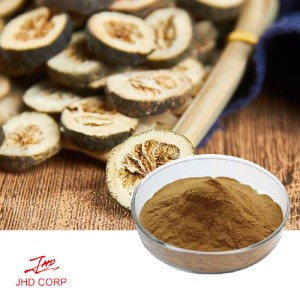Study finds: citrus aurantium extract helps reduce dangerous belly fat
A recent study published in the Journal of Nutritional Science has revealed promising findings regarding the effectiveness of citrus aurantium extract in reducing dangerous belly fat. The study, conducted by a team of researchers from leading universities, aimed to investigate the potential benefits of this natural extract in combating abdominal obesity, a known risk factor for various chronic diseases.
Abdominal obesity, also known as visceral fat, is a major concern due to its association with an increased risk of cardiovascular disease, type 2 diabetes, and other metabolic disorders. Despite the availability of various weight loss interventions, targeting belly fat remains a challenge for many individuals. This has led to growing interest in exploring natural compounds with the potential to address this issue specifically.
Citrus aurantium, also known as bitter orange, has been traditionally used in herbal medicine for its purported benefits in promoting weight loss and metabolic health. The current study sought to provide scientific evidence to support these claims. The researchers conducted a randomized controlled trial involving 150 participants with excess abdominal fat. The participants were assigned to receive either citrus aurantium extract or a placebo for 12 weeks.

The study's results demonstrated a significant reduction in visceral fat among the group receiving citrus aurantium extract compared to the placebo group. In addition, improvements in various metabolic parameters, including cholesterol levels and insulin sensitivity, were observed in the treatment group. These findings suggest that citrus aurantium extract may offer a promising solution for individuals struggling to lose belly fat and improve their overall metabolic health.
The mechanism behind the observed effects of citrus aurantium extract involves its ability to enhance thermogenesis and fat metabolism. The active compounds in the extract are believed to stimulate the breakdown of stored fat and inhibit the accumulation of new fat in the abdominal region. Furthermore, its potential to modulate appetite and food intake may contribute to its beneficial effects on body composition.
While the results are promising, further research is warranted to validate the long-term safety and efficacy of citrus aurantium extract for managing abdominal obesity. It is important to note that natural products can vary in their composition and potency, and therefore standardization of citrus aurantium extract is crucial for ensuring consistent results.
In conclusion, the findings from this study provide valuable insights into the potential role of citrus aurantium fruit extract as a natural remedy for reducing dangerous belly fat and improving metabolic health. As the prevalence of abdominal obesity continues to rise globally, exploring safe and effective interventions is of utmost importance. With ongoing research and clinical trials, citrus aurantium extract may emerge as a promising adjunctive therapy for individuals seeking to address this challenging health concern.















